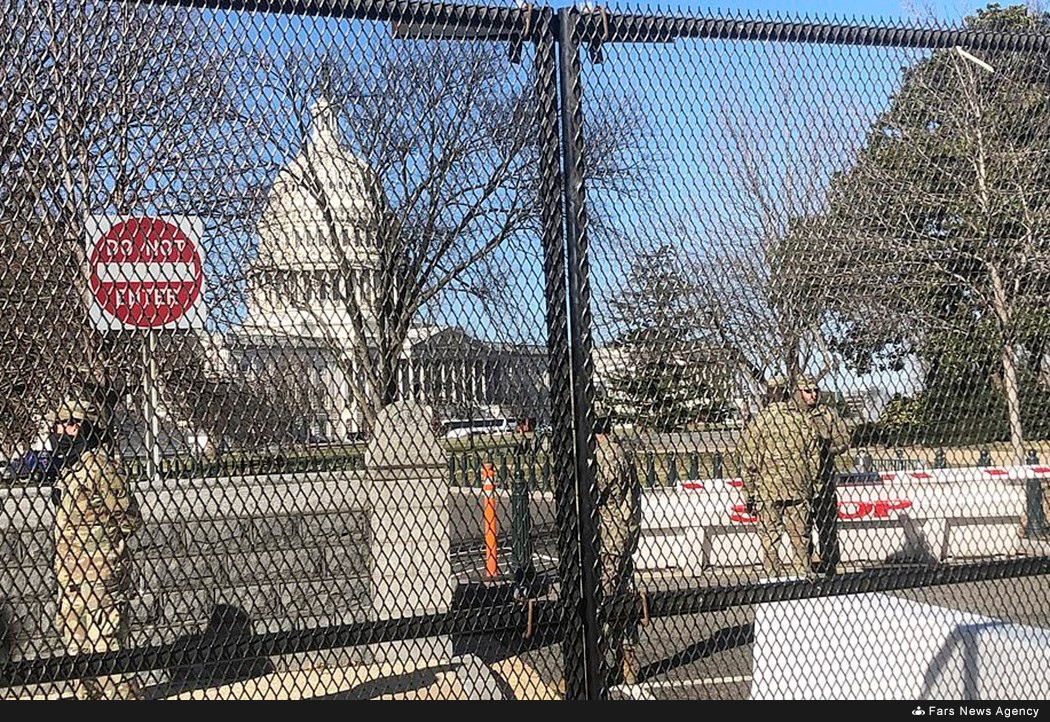Table Of Content

Voting laws that govern when and how ballots are counted differ in each state, allowing some states to finish relatively quickly, while others may not finish for several days. Republicans won the House on Wednesday after a week of counting the outstanding ballots in competitive House districts. We’re tracking the remaining uncalled House races — and showing when they are called — as states continue to count votes from the midterm elections. The tallies below are based on the reported vote so far, and the margin in many races will continue to change as more ballots are counted in the coming days. The US House of Representatives will finally vote on Saturday on a series of foreign aid bills, bringing an end to a months-long standoff in Congress led mostly by Republicans who refuse to support funding Ukraine’s ongoing military defense against Russia’s invasion.
Congressional Budget Office
The House speaker, Republican Mike Johnson, needed to rely on Democratic votes to pass the procedural motion, and he will almost certainly need to do so again to get the Ukraine aid bill across the finish line. The package largely mirrors the foreign aid proposal passed by the Senate in February, although the House legislation designates $10bn of the Ukraine funding as a repayable loan to appease some Republican members who are hesitant to approve additional aid. Soon after, the Senate voted to advance the bill procedurally, but all 100 senators will need to greenlight a final vote to skip other hurdles and pass the bill before the midnight deadline. If that doesn’t happen, the government would be forced into a partial shutdown on Saturday morning. Republican Rep. Carlos Gimenez said he voted to approve legislation to create an independent commission to investigate the attack on the US Capitol because he saw a "breakdown in communications" on Jan. 6. The House approved legislation to create an independent and bipartisan commission to investigate the Jan. 6 attack on the US Capitol.
Democrats secure “trifectas” in many competitive states
The measure nearly collapsed on its way to the House floor, when hard-right Republicans sought to block its consideration, and in a suspenseful scene, Democrats waited several minutes before swooping in to supply their votes for a procedural measure that allowed the plan to move ahead. The 314-to-117 vote came days before the nation was set to exhaust its borrowing limit, and days after a marathon set of talks between White House negotiators and top House Republicans yielded a breakthrough agreement. Much of the House Republican conference remains opposed to sending more money to Kyiv, and Donald Trump once again voiced frustration with approving additional Ukraine aid in a social media post on Thursday. In criticizing the bill to establish a Jan. 6 commission, North Carolina Republican Rep. Dan Bishop claimed "what was an image of a bipartisan commission has now become one more partisan attack."
How Every Representative Voted
The first, passed in late September, caused a furor among hard-right House Republicans that cost Kevin McCarthy the speakership. The House was paralyzed for three weeks while Republicans worked to coalesce around a new speaker, going through three unsuccessful candidates before Mr. Johnson eventually garnered enough support to become speaker. Thirty-five Republicans voted against the direction of their leadership, which had strongly urged them to vote no on the measure. Senate Majority Leader Chuck Schumer hasn’t said exactly when he will set up the first test vote to open debate on the Jan. 6 commission bill.
Katko, who was one of 10 Republicans to vote to impeach then-President Trump over the events of Jan. 6, clarified that the commission would hire "as a team." Bishop suggested the commission would be partisan because it would be staffed entirely by Democrats. The bill now heads to the Senate, where Democrats would need at least 10 Republican senators to sign on to the legislation.
But tonight, he took a step that will allow him to bring the bill to the floor as early as next week if he wants. In its entirety, the package of rules and the changes forced by the ultraconservative Republicans will allow for greater transparency in how legislation is crafted. But it could also hamstring the basic functions of governance in the House, including efforts to approve must-pass legislation to keep the government funded and prevent the nation from defaulting on its debt later this year. Information about all receipts and expenditures of representatives, committees, leadership, and officers of the House.
"That's one of the great things about our party and the leader in particular. I have been able to break ranks with my party on a number of issues unlike the Democrats who don't break ranks at all," Gimenez said. Information about certain expenditures for all official foreign travel by representatives and staff. An overwhelming bipartisan coalition pushed through the compromise struck by Speaker Kevin McCarthy and President Biden, even as lawmakers in both parties signaled displeasure with the plan. “We need a speaker who puts America first rather than bending to the reckless demands of the warmongers, neocons and the military-industrial complex making billions from a costly and endless war half a world away,” Gosar said in a statement on Friday. Below are races where CNN has not projected a winner — along with the number of ballots that remain to be counted in each, according to estimates from Edison Research.
Schumer takes step allowing him to bring Jan. 6 bill to the floor as early as next week
Live updates: House passes Ukraine, Israel and Taiwan aid - CNN
Live updates: House passes Ukraine, Israel and Taiwan aid.
Posted: Sat, 20 Apr 2024 23:15:00 GMT [source]
This threshold varies by state and is based on patterns of past vote reporting and expectations about how the vote will report this year. The top Democrat and Republican on the House Homeland Security Committee struck a deal last week to create the commission, breaking a months-long logjam between House leaders about how to structure the independent panel. The House voted Wednesday to approve legislation to establish an independent commission to investigate the violent insurrection on Jan. 6 at the US Capitol.
Profiles, artifacts, images, historical essays, data, and educational resources related to Hispanic American members of Congress. Profiles, artifacts, images, historical essays, data, and educational resources related to African-American members of Congress. Elected by the whole of the House of Representatives, the Speaker acts as leader of the House and combines several institutional and administrative roles. Elected by their peers, certain representatives hold positions that combine institutional, administrative and partisan roles. With the help of House Democrats, Speaker Mike Johnson successfully pushed forward a stopgap measure that would keep the government funded into the beginning of next year.
On a vote of 252 to 175, the House voted overwhelmingly to pass the bipartisan Jan. 6 commission. Rep. Bennie Thompson, a Mississippi Democrat who co-sponsored the Jan. 6 commission bill, said the 35 Republicans who voted in favor of the legislation "took a principal vote." That was a blow to the Republican speaker, whose hard-fought victory on the measure was dampened by the fact that more Democrats ultimately voted for the bill than members of his own party.
Notably, the bill contains no aid for Ukraine or Israel, which would have to be passed separately. The deal represented a significant bipartisan breakthrough on a proposal that had been stalled for months since House Speaker Nancy Pelosi first proposed a commission to investigate the insurrection at the Capitol in the days after the deadly attack. The House just voted to approve legislation to create an independent and bipartisan commission to investigate the Jan. 6 attack on the Capitol. Republicans passed the rules that govern how the House operates, just days after a marathon round of ballots to elect Kevin McCarthy as speaker. Mr. McCarthy and his top lieutenants had labored to secure the votes needed to pass the package of rules, after making a series of concessions to a group of opponents in the party’s right flank. If Greene moves forward with the motion to vacate, Johnson will once again need to rely on Democratic votes to save him, as Republicans will have just a one-seat majority after Mike Gallagher of Wisconsin resigns in the coming days.
Should that happen in votes set for Saturday afternoon, the Senate was expected to quickly pass the measure, and President Biden has said he would sign it into law. The bill, released early Thursday, funds the departments of Homeland Security, State, Labor, Defense, Health and Human Services and various other agencies. Together with the $459 billion bill passed earlier this month, it fully funds the federal government to the tune of $1.659 trillion through September, after months of stopgap bills and negotiations. Gimenez was one of 35 Republicans who voted to support the measure, despite calls from party leadership to vote no. Senate and House of Representatives take thousands of votes, some to pass bills, resolutions, nominations, and treaties, and others on procedural matters such as on cloture and other motions. House members will hold separate votes on four bills that represent $95bn in funding altogether – including roughly $26bn in aid for Israel, $61bn for Ukraine, $8bn for US allies in the Indo-Pacific region and $9bn in humanitarian assistance for civilians in war zones, such as Gaza.
If passed, the legislation will provide a crucial financial lifeline for Ukraine at a time when the country’s military appears at its most vulnerable since the start of the war, due to dwindling supplies of ammunition and air defense missiles. But it came only after Speaker Mike Johnson put his job on the line by turning to Democrats in a significant breach of custom in the House, further imperiling his position even as he paved the way for the legislation to be voted on and approved. But they didn’t take questions about whether they’ll seek to retaliate by removing Johnson or calling for changes in GOP leadership, whom they blamed for the final product. Whether or not we can avoid a government shutdown solely depends on a small number of Senate Republicans, and whether they will drag this out through the weekend,” Sen. Chris Coons, D-Del., said on MSNBC. "I am also very happy that our ranking member was able to do a bipartisan and get some concession from the Democrats. That's why I voted for this."

No comments:
Post a Comment